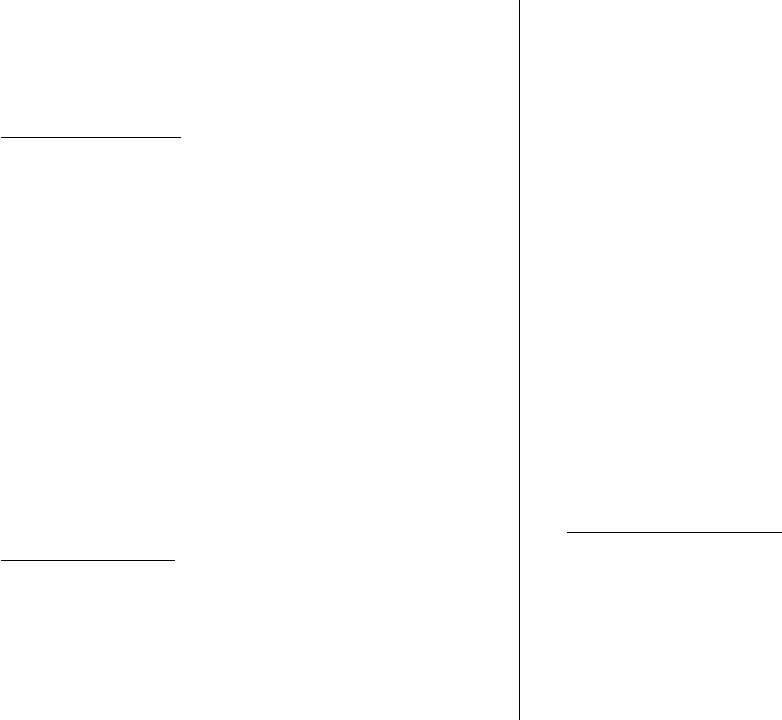
40
[postpositive]: used to mark an adjective which is used postpositively, i.e. it
typically comes immediately after the noun which it modifies. Such uses are
unusual in English and generally arise because the adjective has been adopted
from a language where postpositive use is standard, e.g. galore in
there were
prizes galore for everything
.
Terms relating to adverbs
[sentence adverb]: used to mark an adverb which stands outside a sentence or
clause, providing commentary on it as a whole or showing the speaker’s or writer’s
attitude to what is being said, rather than the manner in which something was done.
Sentence adverbs most frequently express the speaker's or writer's point of view,
although they may also be used to set a context by stating a field of reference, e.g.
certainly.
[as submodifier]: used to mark an adverb which is used to modify an adjective or
another adverb, e.g. comparatively.
Evidence and Illustrative Examples
The information presented in the dictionary about individual words is based on
close analysis of how words behave in real, natural language. Behind every
dictionary entry are examples of the word in use–often hundreds and thousands of
them–which have been analysed to give information about typical usage, about
distribution (whether typically British or typically US, for example), about register
(whether informal or derogatory, for example), about currency (whether archaic or
dated, for example), and about subject field (whether used only in Medicine,
Finance, Chemistry, or Sport, for example).
1. Oxford English Corpus
The
Oxford Dictionary of English
was compiled using the Oxford English Corpus,
and new material added to this second edition has been derived from this source.
The Oxford English Corpus is the name for the Oxford University Press holdings of
language databases amounting to hundreds of million words of written and spoken
English in machine-readable form, available for computational analysis. Among
these language resources are the British National Corpus (100 million words), a
new corpus of comparable size, and the database of the Oxford Reading
Programme (see below). By using concordancing techniques, each word can be
viewed almost instantaneously in the immediate contexts in which it is used.
Whereas compilers of previous dictionaries were able to base their work on only a
limited selection of citations, lexicographers on the
Oxford Dictionary of English
analysed hundreds of real examples of each word to see how real language
behaves today.
Concordances show at a glance that some combinations of words (called
‘collocations’) occur together much more often than others. For example,
concordance entries might show that ‘end in’, ‘end the’, and ‘end up’ all occur quite
often. But are any of these combinations important enough to be given special
treatment in the dictionary?
Recent research has focused on identifying combinations that are not merely
frequent but also statistically significant. In the Oxford English Corpus, the two
words ‘end the’ occur very frequently together but they do not form a statistically
significant unit, since the word ‘the’ is the commonest in the language. The
combinations end up and end in, on the other hand, are shown to be more
significant and tell the lexicographer something about the way the verb end
behaves in normal use. Of course, a dictionary for general use cannot go into
detailed statistical analysis of word combinations, but it can present examples that
are typical of normal usage. In the
Oxford Dictionary of English
particularly
significant or important patterns are highlighted, in bold, e.g. end in, end up under
end.
For further details, see the section on Grammar.
2. Oxford Reading Programme
The citation database created by the Oxford Reading Programme is an ongoing
research project in which readers around the world select citations from a huge
variety of specialist and non-specialist sources in all varieties of English. This
database currently stands at around 77 million words and is growing at a rate of 7
million words a year.
